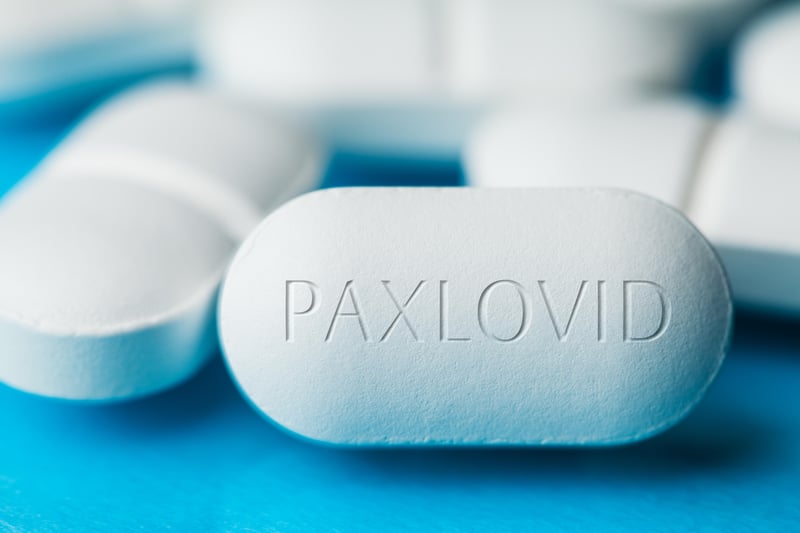Recursos del Paciente
Manténgase sano!
COVID Drug Paxlovid Might Interact With Heart Meds
- October 13, 2022
- Dennis Thompson
- HealthDay Reporter

The COVID-19 antiviral Paxlovid has been a game-changer in the global pandemic, shielding high-risk patients from the coronavirus' most devastating effects.
But Paxlovid can itself pose a risk for people taking widely prescribed heart medications to lower cholesterol, prevent blood clots or manage irregular heartbeat, a new paper warns.
Some heart patients might need to either avoid Paxlovid or cut back on their heart meds while receiving the antiviral treatment, warns senior researcher Dr. Sarju Ganatra, director of the cardio-oncology program at Lahey Hospital and Medical Center in Burlington, Mass.
The situation presents a tightrope walk for doctors and patients, given that Paxlovid reduces progression to severe COVID by 89% in high-risk patients who are unvaccinated, the researchers noted in the report published Oct. 12 in the Journal of the American College of Cardiology.
"We do not want physicians to take away that we are deterring them from prescribing Paxlovid, because these are the patients who are most likely to benefit, those who have heart conditions,"Ganatra said. "People with pre-existing cardiovascular risk factors are at very high risk of developing severe COVID. The purpose is to make people aware there is a drug/drug interaction."
Paxlovid is a combination of two drugs, nirmatrelvir and ritonavir, and experts say the main concerns for drug interactions come from ritonavir.
Ritonavir has been used for decades in HIV therapies because it boosts the effect of antiviral drugs, said pharmacist Robert Page, who sits on the American Heart Association's Council on Clinical Cardiology.
Unfortunately, ritonavir also boosts the effects of up to two-thirds of all medications on the U.S. market, by slowing the body's ability to metabolize the drugs and flush them out efficiently, Page said.
"Honestly, it interacts with a very large majority of medications, and this is why this article is so critical,"Page said of Ganatra's report. "When this drug first came out on the market, I was like, whoa, this is going to cause some issues."
Paxlovid can cause cholesterol-lowering statins to build up in the body, prompting liver dysfunction and muscle degeneration, Page said.
It also can interact with some anti-arrhythmic drugs, increasing the risk for a fatal abnormal heart rhythm (ventricular arrhythmia), Page said.
Antiplatelet and anticoagulant drugs (blood-thinners) are also a concern with Paxlovid, said pharmacist Craig Beavers, who heads the American College of Cardiology's Cardiovascular Care Team Council.
The boost from ritonavir could increase bleeding risk with the antiplatelet drug ticagrelor (Brilinta) and blood thinners like warfarin, the paper's authors noted.
"If you have a patient who is at high risk of bleeding, you want to either avoid that combination or closely monitor them,"Beavers said.
On the other hand, the antiplatelet agent clopidogrel (Plavix) could actually increase a person's risk of blood clots through its interaction with Paxlovid, the researchers noted.
Doctors are still trying to figure out how to manage these drug interactions, experts said.
Part of the problem is that some drugs build up in the system, so even if COVID patients stop taking them when they start Paxlovid there will still be a significant risk of an interaction, Ganatra said.
For example, some antiarrhythmic drugs "stay in our system for days. They have a very long half-life,"Ganatra said. "Even when you stop taking that drug, it's going to be in your system for days or weeks. Every drug is different, but they don't disappear from your system in six to 12 hours like many other drugs do."
The other complication is that medical science's main source of information on ritonavir has been from its use in HIV treatment, where it is prescribed long-term, Beavers said.
"The question remains: Does that have any dramatic effect in COVID patients taking these medications short-term"over a five-day period, Beavers said. "We don't know the answer to that because we don't have data out there."
At this point, the decision to either avoid Paxlovid or cut back on a given heart medication ultimately will be made on a case-by-case basis, Beavers said.
Dr. Matthey Tomey, director of the Cardiac Intensive Care Unit at Mount Sinai Morningside in New York City, agreed.
"For some of our patients, it is safe to temporarily stop a heart medicine, adjust it or replace it with an alternative. Other times, this is not possible,"Tomey said. "Needless to say, if you are treated for a heart condition and develop COVID-19, it is wise to speak with your cardiologist before starting a course of Paxlovid."
Ganatra suggests that electronic health systems be programmed to flag potential interactions between Paxlovid and patient's heart prescriptions, so doctor and patient can discuss the risk and come to an informed decision.
More information
The U.S. National Institutes of Health has more about Paxlovid interactions with other drugs.
SOURCES: Sarju Ganatra, MD, director, cardio-oncology program, Lahey Hospital and Medical Center, Burlington, Mass.; Robert Page, PharmD, American Heart Association Council on Clinical Cardiology, Colorado; Craig Beavers, PharmD, chairman, American College of Cardiology Cardiovascular Care Team Council; Matthew Tomey, MD, director, Cardiac Intensive Care Unit, Mount Sinai Morningside, New York City; Journal of the American College of Cardiology, Oct. 12, 2022, online

